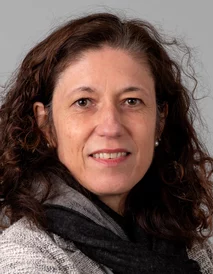SSHD v YK (PSG - Women) Turkey CG [2002] UKIAT 05491: Forced Marriage in Turkey and the 1951 Convention
by Katia Bianchini and Libby Johnston
Question(s) at stake
Whether the claimant, who was a Turkish woman facing a non-consensual arranged marriage, and who feared persecution at the hands of their family on their discovery that she had breached social norms mandating pre-marital virginity, was, therefore, qualified for protection under the Refugee Convention.
Outcome of the ruling
The claimant did not qualify for protection under the Refugee Convention. While she would face discrimination in Turkey, she was not seen as threatened with persecution in that country, due to significant changes in local law, and due to the fact that the Turkish authorities can and do offer protection to women in the kind of situation faced by the claimant.
Country:
United Kingdom
Official citation
SSHD v YK (PSG - Women) Turkey CG [2002] UKIAT 05491
Topic(s)
Keywords:
Forced marriage
Grounds/Reasons of persecution
Membership of a particular social group
Refugee status
Asylum seeker
Gender based persecution
Arranged marriage
Tag(s):
Honour persecution
Bibliographic information
Bianchini, Katia; Johnston, Libby (2024):
SSHD v YK (PSG - Women) Turkey CG [2002] UKIAT 05491: Forced Marriage in Turkey and the 1951 Convention,
Department of Law and Anthropology, Max Planck Institute for Social Anthropology, Halle (Saale), Germany,
CUREDI013UK017,
https://doi.org/10.48509/CUREDI013UK017.
About the authors
Katia Bianchini (Max Planck Institute for Social Anthropology, Department Law and Anthropology, Germany)


Katia Bianchini is a Research Fellow of the Law and Anthropology Department of the Max Planck Institute for Social Anthropology in Halle. She holds a law degree from the University of Pavia (Italy), an LL.M. in Comparative Laws from the University of San Diego (California, USA), and a Ph.D. in Law from the University of York (UK). Her doctoral thesis provided an empirical and legal analysis of how the 1954 UN Convention relating to the Status of Stateless Persons is implemented in ten EU states. She has also worked as a Post-Doctoral Researcher at the Max Planck Institute for the Study of Religious and Ethnic Diversity (Göttingen). Before engaging in research, she practised immigration and refugee law for ten years in the UK and the USA.
Bianchini has published in the field of refugee law, statelessness, and the rule of law in the context of sea migration. Her current research builds on her expertise in human rights and Italian law and looks at the treatment of deceased sea migrants in the South of Italy.
Libby Johnston (University of Essex, Human Rights Centre, Colchester, United Kingdom)

Libby Johnston has ten years experience working with UNHCR (Geneva, Rome and South Africa) and has volunteered for various international organisations, NPOs, NGOs and CBOs. Her work mostly concentrates on vulnerable groups (i.e. the elderly, children, sexual minorities, HIV positive persons and abused women). This was also the main inspiration for her founding E.Wo.R.K. (Education for women, refugees and kids), a non-profit organization aiding refugees with livelihood activities and shelter.
